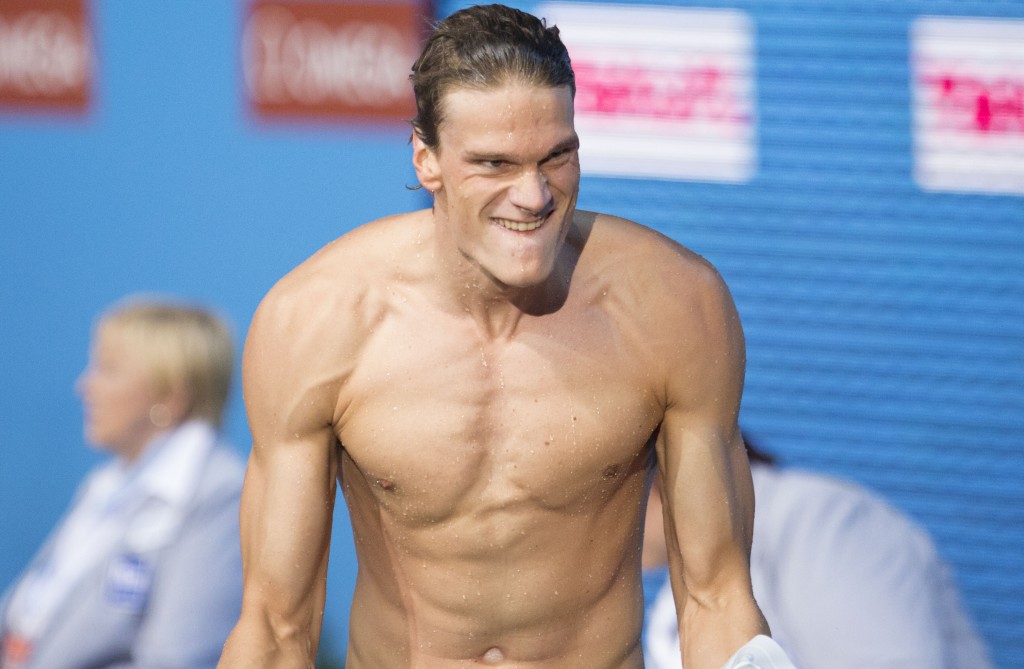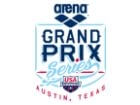What Do Times at Arena Grand Prix in Austin Tell Us?

Commentary by David Rieder
DURHAM, North Carolina, January 22. ON Friday, the one-time face of American women’s swimming took to Twitter to share her thoughts on the just-beginning Arena Grand Prix in Austin.
Now attempting a comeback, Katie Hoff wrote what she called a “rant” on the tendency to quickly react and judge a swimmer’s season and even career based on one swim at a meet during the year. “People are SO judgmental of in season swims of the top swimmers. Oh in PRELIMS….Based off little to zero knowledge of that swimmer.”
People are SO judgmental of in season swims of the top swimmers. Oh in PRELIMS….Based off little to zero knowledge of that swimmer.
— Katie Hoff (@khoff09) January 17, 2014
Hoff’s tweet served as a gut check for swim fans draped over awaiting the results of each event and eager to analyze the results. Indeed, the results of a Grand Prix meet in January have no bearing on who will qualify for this year’s Pan Pacific Championships and next summer’s World Championships, let alone the Olympics in two years.
Plenty of swimmers – Ryan Lochte comes to mind – swim far from their best times during the year only light it up come taper. A disappointing time during the winter means nothing if the training cycle is geared towards the summer.
However, a swift swim at a meet such as last weekend’s Arena Grand Prix in Austin can be big for a swimmer in order to provide some confidence headed into the bigger meets down the line or perhaps to send a message to rivals of one’s intentions for the coming season. That’s exactly what Nathan Adrian did in the meet’s first men’s event, as he blasted a 48.26 that beat out the field by more than a second. With World Champion James Magnussen having already thrown down a 47.73 that same day in Australia, Adrian’s swim served as a small reminder that he won’t go down easily when the two meet head-to-head once again.
Likewise, Adrian clocked a 21.89 to win the 50 free a day later. Adrian defeated his biggest domestic rivals in the event – Anthony Ervin, Jimmy Feigen, and Cullen Jones – by more than a half second. Each clocked a solid time in the 22-mid range, but Adrian’s sub-22 blast helps cement his status as the favorite for the event at Nationals once again.
Allison Schmitt left a similar message in the women’s 200 free. She didn’t need to swim a 1:57.71 to make the race productive, but her win over Katie Ledecky helped to put Schmitt’s bitterly-disappointing 2013 squarely in the rearview mirror.
Meets in mid-January rarely bring big surprises that actually have an impact on the international racing scene, but Yannick Agnel’s performance in the men’s mile could be just that. Agnel has obviously established himself as the premier 200 freestyler in the world – his 1:45.76 in Austin did not harm that perception – as well as a solid performer in the 100 and 400, but the 1500? The Frenchman showed he can do it all with a 15:07.76, a lifetime best by more than nine seconds and well ahead of the likes of Michael McBroom and 2008 Olympic champion Ous Mellouli.
Sure, that swim could have been a fluke. Maybe Agnel’s mid-distance-focused training had somehow prepared him to swim his best mile in January. That wouldn’t be a novelty in swimming. However, North Baltimore coach Bob Bowman has been known to train his pupils for the longest of races, and he could have Agnel in a position to contend in every freestyle event from the 100 to the 1500 by next year’s World Championships. No, he most likely will not contest all five races, a feat that even the great Ian Thorpe never attempted, but at the very least, Agnel showed in Austin that his distance swimming has potential.
Unlike Agnel’s mile, a great race in the men’s 100 back has become the norm at any meet on U.S. soil, and Austin was no different. Nick Thoman led the way at the 50, and he clocked a very respectable time of 54.09… good for fourth place. Matt Grevers ended up winning the battle down the stretch, clocking 53.72, while Arkady Vyatchanin (53.88) and Ryan Murphy (53.98) both came in ahead of Thoman. Grevers has won a lot of these races of late, as evidenced by his matching World and Olympic gold medals, but this one is just a baby step.
Grevers and his rivals left the Lee and Joe Jamail Swim Center in Austin with racing experience that could prove valuable down the line. The 100 back races at Grand Prix meets tend to be among the most exciting because with the wealth of top dorsal specialists training in the U.S. one really never knows who will win. In the end, though, that result doesn’t really matter. Grevers got to enjoy the win, but he knows that the big prize comes when the weather gets warmer.




